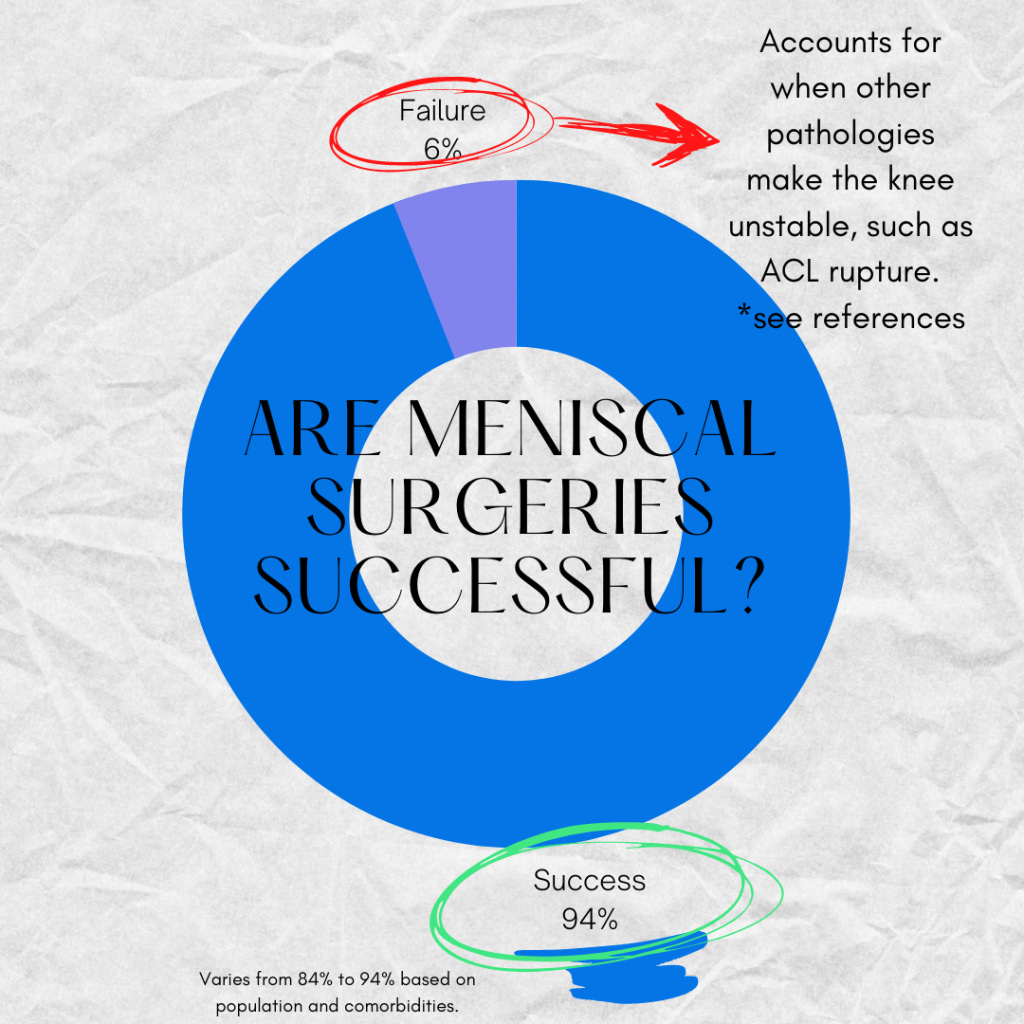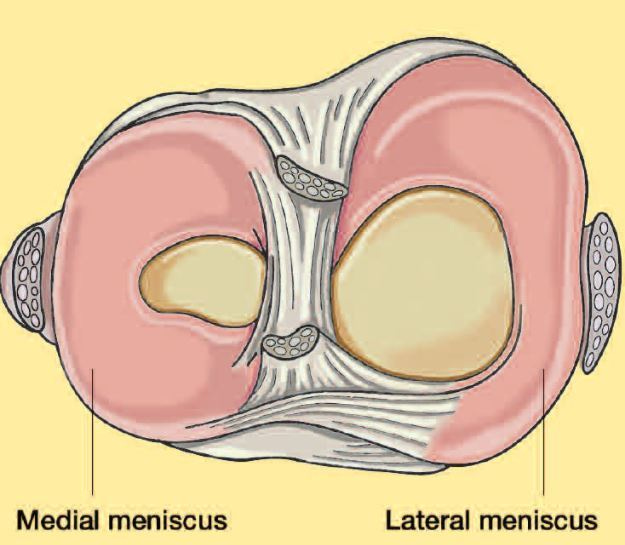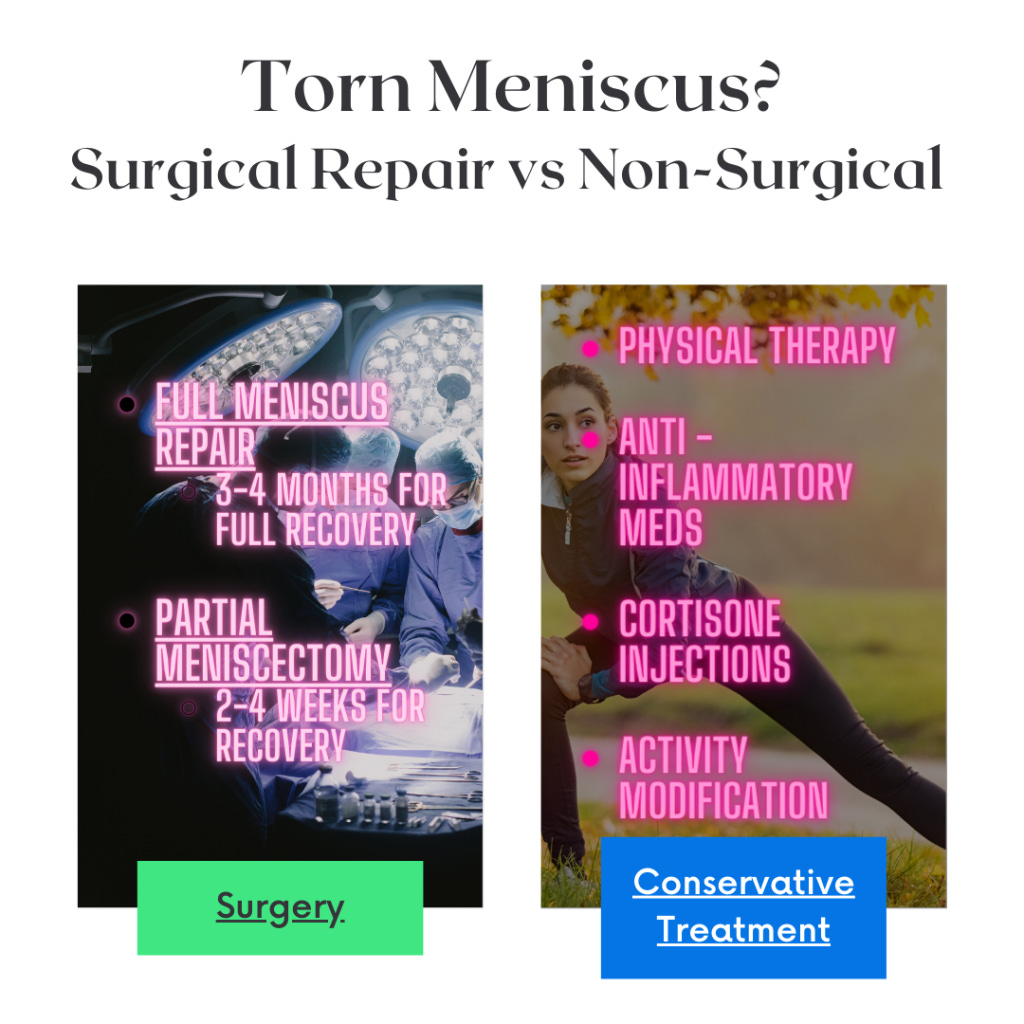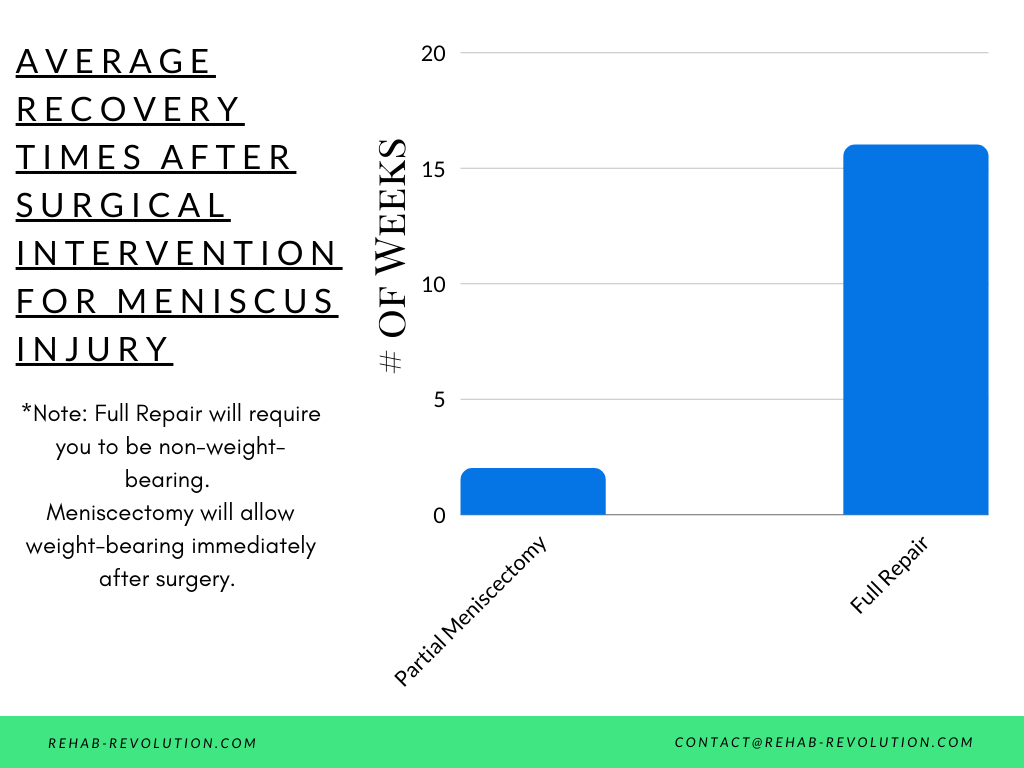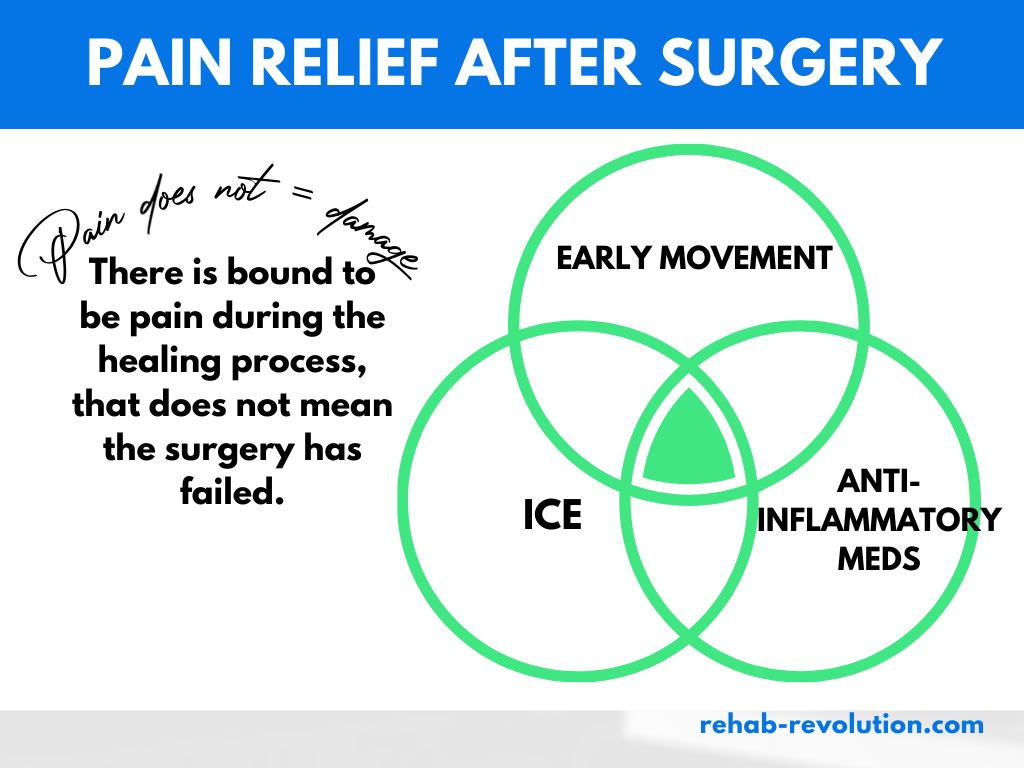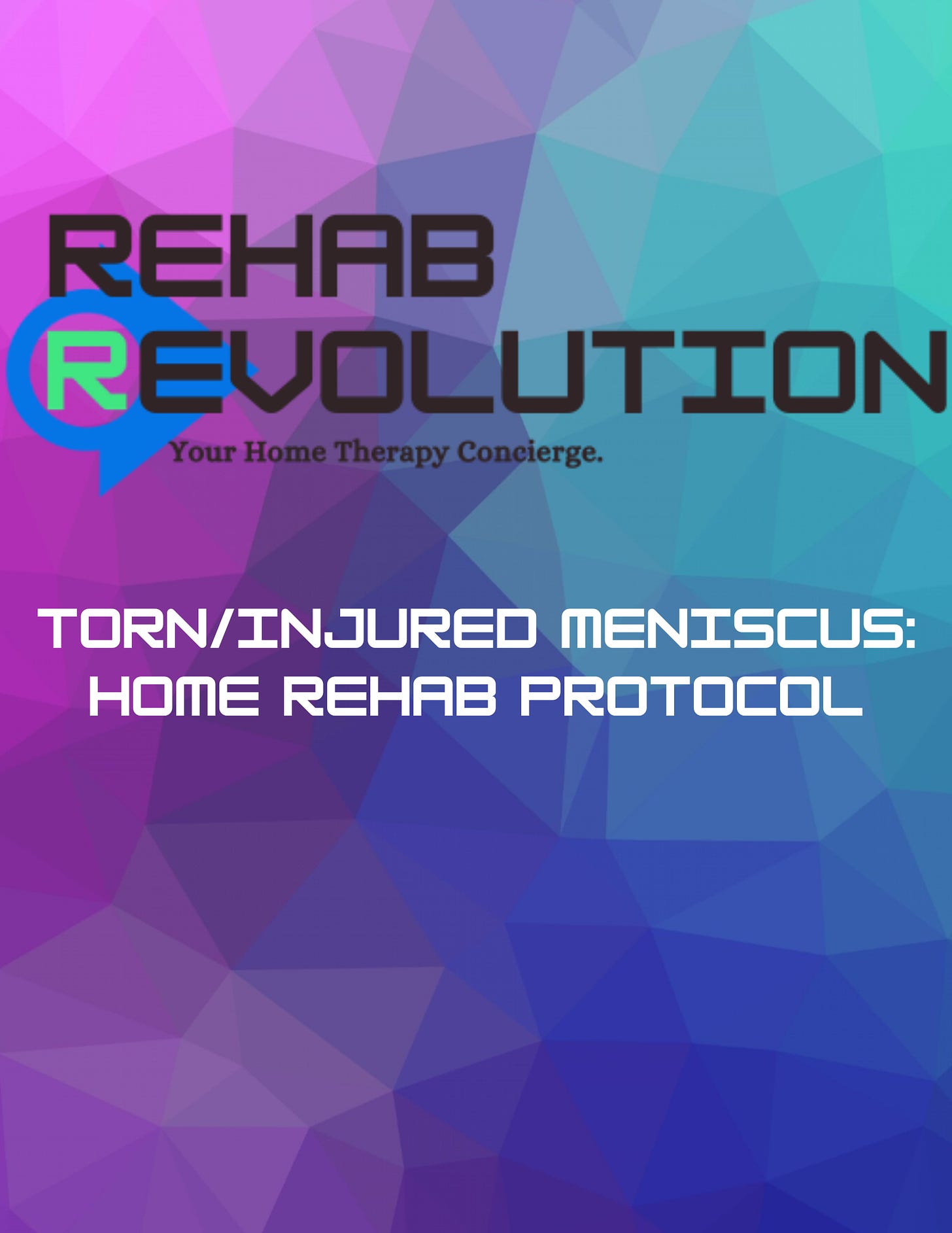Do You Need Physical Therapy After Meniscus Surgery?[Feb. 2021 update]
Do you need Physical Therapy After Meniscus Surgery? Chances are high that your doctor already required you to take physical therapy prior to surgery in an attempt at conservative treatment. They do this for two reasons:
Most insurances will require conservative efforts before they approve surgical intervention.
Sometimes it actually works so well that you won't need to go under the knife.
But honestly, if your meniscus is damaged, orthoscopic surgery is the best option. It's minimally invasive and maximally effective.
What Exactly Is The Meniscus?
Each knee has two 'C-shaped' menisci that are made of strong, supportive, and flexible tissue. These menisci have three functions:
Provide shock absorption and evenly distributes weight and compressive forces.
Form a shallow cup to keep your femur and tibia stacked during movement.
Helps to keep the knee joint lubricated and free to move.
Full Meniscus Repair Versus Partial Meniscectomy:
Full Meniscus Repair - The surgeon makes a small incision and arthroscopically reapproximates the torn edges of the meniscus and sets them back in their proper position.
Note: This is only viable if the tear is near the outer edge of the meniscus therefore has good blood supply.
Partial Meniscectomy - The surgeon again makes a small incision and uses the 'scope' to trim off the damaged section of meniscus, leaving as much of the healthy tissue as possible.
How Long Does The Surgery Take?
Both are outpatient procedures. You will be home the same day.
What is the Recovery Time?
Full Meniscus Repair - Recovery will take 3-4 months, and up to 5 months to regain full athletic ability.1
Partial Meniscectomy - Recovery to running/jogging level usually takes 2-4 weeks. Full sport recovery shortly after that.2
Will I Be Pain Free After The Surgery?
No. While the pain should be considerably less than before the surgery, you will have localized pain for the next 2-3 weeks. The pain can last longer based on individual factors but in general should be getting better with time. If pain persists without improving or gets worse, consult your surgeon to figure out why.
In 20-40% of cases, Full Meniscus Repair does not heal and requires a second surgery to remove the torn piece of tissue.3
Do I Need Therapy?
Up to this point, this article has presented facts. Now I will present a clinical opinion based on facts and experience. I believe that you do not need to standard outpatient physical therapy.
Meniscal Rehab is a safe process with minimal risk. Most of your rehab can be done at home after a consult with a therapist and occasional virtual guidance.
Full Meniscus Repair: You will likely be appropriate for a specific Rehab Protocol administered by your surgeon. A virtual visit with a therapist is all that is needed to walk you through the exercises and help you to manage your knee brace. You will likely require 2-3 follow-up virtual visits.
There are specific and time-sensitive benchmarks to reach to successfully rehabilitate after a Full Meniscus Repair. Whether you choose standard therapy or Virtual Consults, some professional guidance is necessary.
Partial Meniscectomy: The rehab process for this procedure is less intensive and can certainly be completed at home with as little as 1-2 virtual visits.
Specific exercises and manual techniques are considered to maximize knee stability and prevent reinjury.
Immediate weight-bearing is allowed and patients are typically back to performing all activities of daily living in three or four days.
Meniscus Repair Rehabilitation Consult:
Not sure... Receive a FREE Initial Consult to see if I can help you.
After that:
*$49 per consult
*Printable Customized exercises included
*Professionally bound Protocol book (optional +$15)
$49.00
Cleveland Clinic. Meniscal Tears. 2021. https://my.clevelandclinic.org/health/diseases/17219-meniscal-tears
Uzun E, Misir A, Kizkapan TB, Ozcamdalli M, Akkurt S, Guney A. Factors Affecting the Outcomes of Arthroscopically Repaired Traumatic Vertical Longitudinal Medial Meniscal Tears. Orthop J Sports Med. 2017;5(6):2325967117712448. doi:10.1177/2325967117712448


